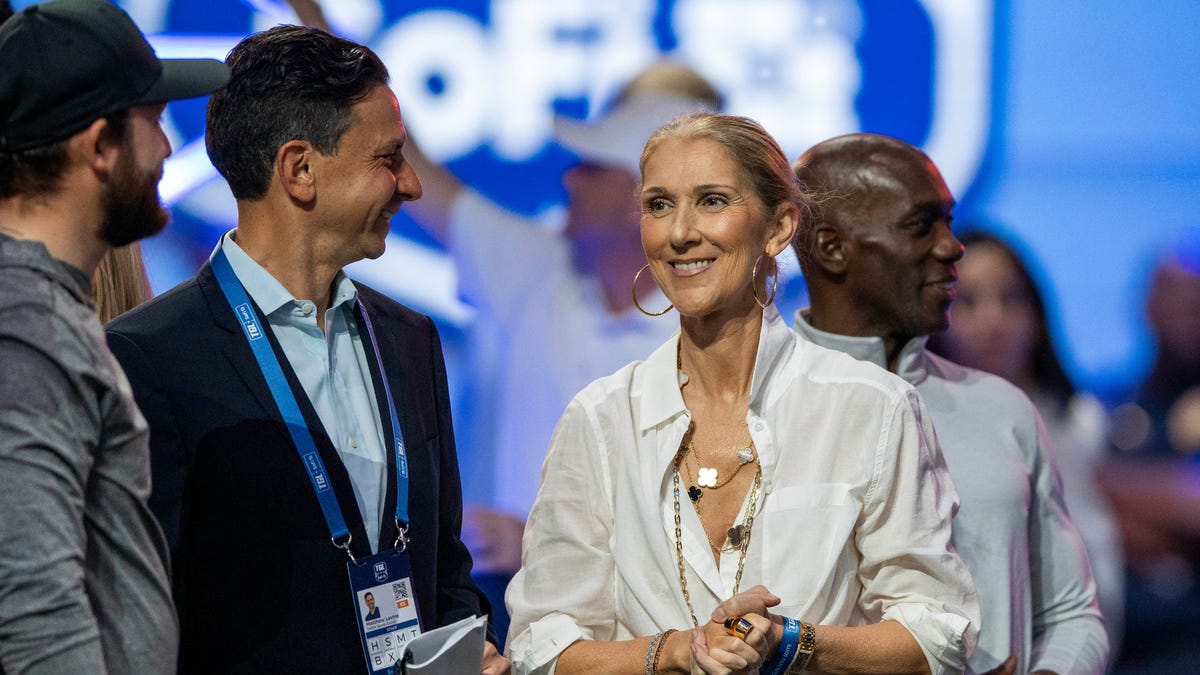Adele, Celine Dion share tearful embrace at Las Vegas residency show
The queens of the Las Vegas residency shared an emotional encounter Saturday night at Caesars Palace when Celine Dion turned up for Adele’s show.
The one and only Céline Dion is warning fans of AI-generated music said to feature her.
The legendary singer’s team took to Instagram Friday to flag fans regarding the artificial intelligence-generated music, calling it the “unsanctioned” use of “Celine Dion’s musical performances, and name and likeness.”
The statement continued: “Please be advised that these recordings are fake and not approved, and are not songs from her official discography.”
It is unclear what prompted the statement to be issued. Dion has released music as recently as 2024 for the soundtrack to her documentary “I Am: Celine Dion,” featuring her biggest hits. In 2023, she released five original songs for the soundtrack of the romantic comedy “Love Again,” her first feature film in which she plays a fictionalized version of herself.
Aside from her official musical comeback at the 2024 Paris Olympics opening ceremony in July, live performances from Dion, 56, have been rare since her diagnosis with stiff person syndrome. Dion first revealed the diagnosis in 2022 as the reason she had to cancel her upcoming world tour dates and Las Vegas residency.
During Dion’s return to the spotlight, she released her harrowing documentary, in which she suffers a violent episode of the syndrome onscreen.
AI-generated music has become a problem in recent years. In 2023, the song “Heart on My Sleeve” went viral for its use of AI-generated vocals that replicated the musical likenesses of Drake and The Weeknd. In 2024, record label Universal Music Group briefly removed the catalogs of its artists from TikTok, citing the publication of AI-generated music as one of the reasons for its exit.
The technology has also been a source for creative expression. In 2023, The Beatles treated fans to the band’s final song, “Now and Then,” and used AI technology to extract John Lennon’s voice from a late-1970s demo recording.
In January, former Beatle Paul McCartney cautioned that artificial intelligence could be used to “rip off” artists, urging the British government to make sure upcoming copyright reforms protect its creative industries.
Contributing: William James, Reuters

Leave a Reply